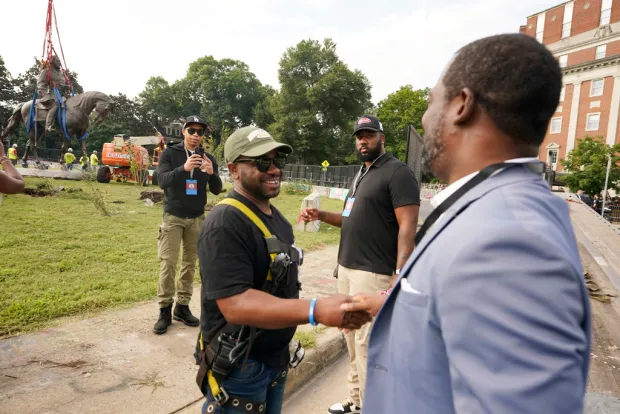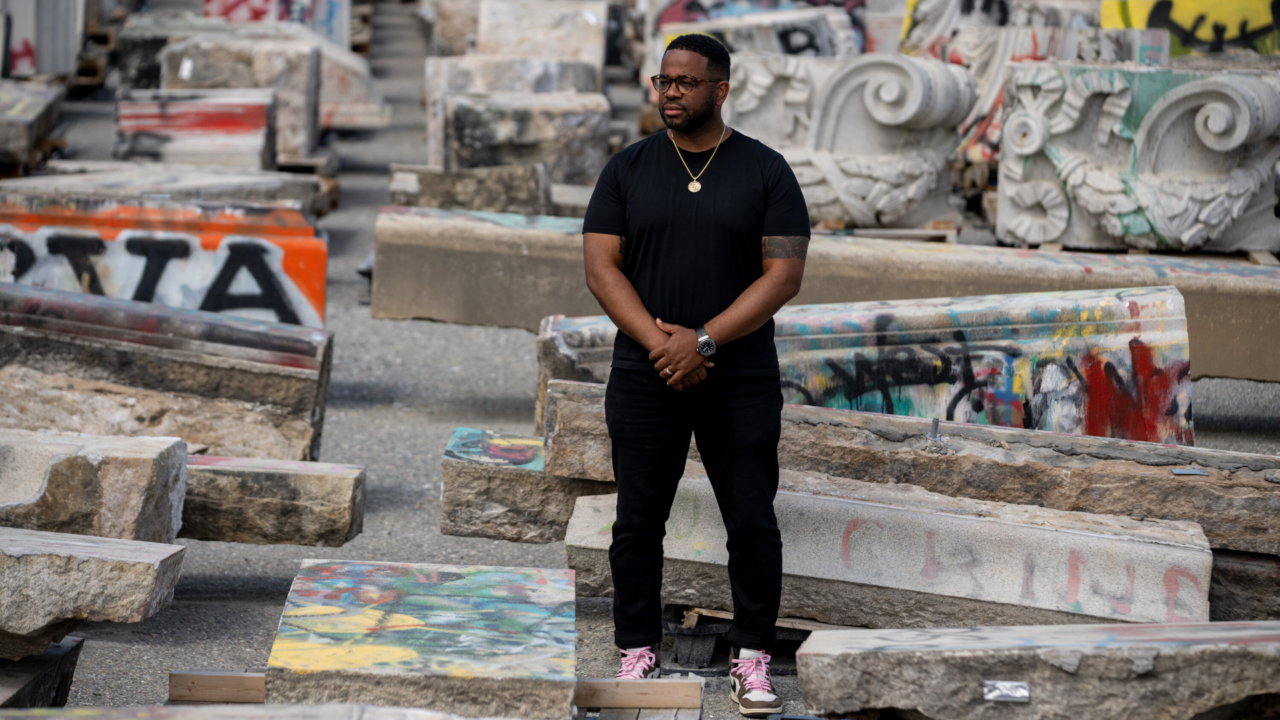Coming under increasing pressure to get rid of its Confederate monuments, Virginia’s governor called upon Mr. Henry’s expertise.
Over the phone, the governor revealed that dozens of white-owned contracting companies had declined getting involved with the dismantling projects. According to reports, most of these refusals were racially motivated.
As the Black owner of a general contracting company called Team Henry Enterprises, Mr. Henry was well-aware that taking the job was a safety risk for his team and himself.
Regardless, family and company-wide discussions resulted in a mutual agreement: Mr. Henry would take on the project.

Given the precariousness of the job and the costly equipment needed to carefully dismantle the structures, Team Henry Enterprises was awarded $1.8 million to remove dozens of the state’s Confederate iconography.
In the first year, Mr. Henry was responsible for removing over 23 monuments across the Southeast US. Fast forward to today and at least 73 colonial statues have been removed across the country by his firm.
Unfortunately, carrying out this work has positioned Mr. Henry as a target for racial abuse and threats to personal safety. His address was posted online and attempts to pin down his driving route to work could be found in social media threads.
Mr. Henry admitted to wearing a bulletproof vest and carrying a firearm while on jobsites as a precaution.
And though his contracting firm has been widely successful, having received over $100m for other federal contracts, Mr. Henry told the Washington Post that its dismantling projects remain the ‘most meaningful.’

Today, the Black History Museum and Cultural Center of Virginia hold the pieces of statues dismantled in the state.
This includes one of Virginia’s most prominent symbols – a 60-foot monument of Robert E. Lee, a high-ranking Confederate general during the American Civil War.
When the statue was put up in 1980, John Mitchell Jr., editor of a Black newspaper The Richmond Planet, published a news piece about it. He prophesied that: ‘He [Black men] put up the Lee monument, and should the time come, will be there to take it down.’
The article intended to shed light on the resilience of the Black community in America and around the world. It cemented hope and belief that the future would be better for millions of people.
On a rainy September day in 2020, Mr. Henry fulfilled that prophecy. The dismantling of this infamous monument – and the name of Devon Henry – will live on in history, shining light where America’s dark history was once placed on a pedestal.





















